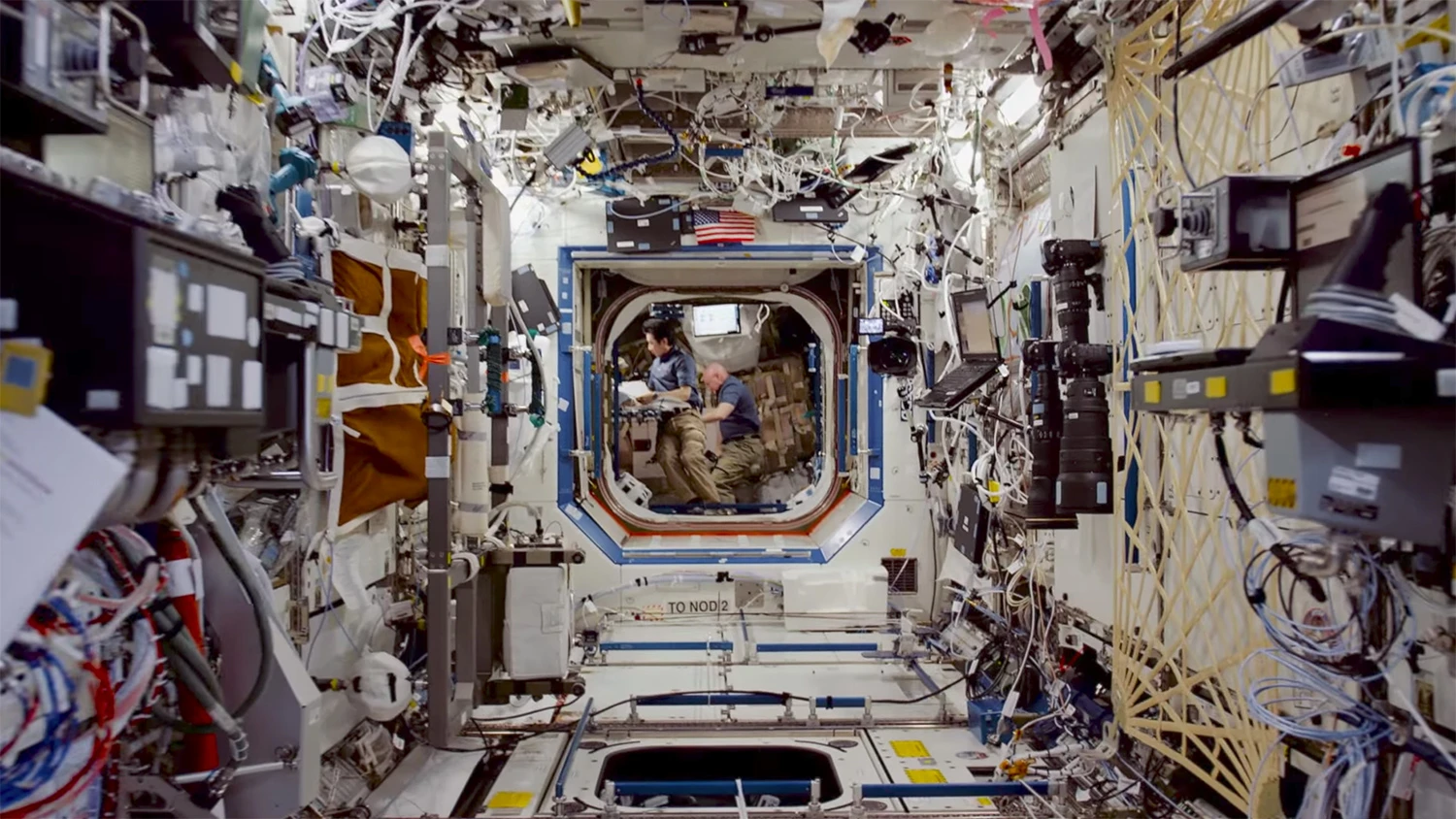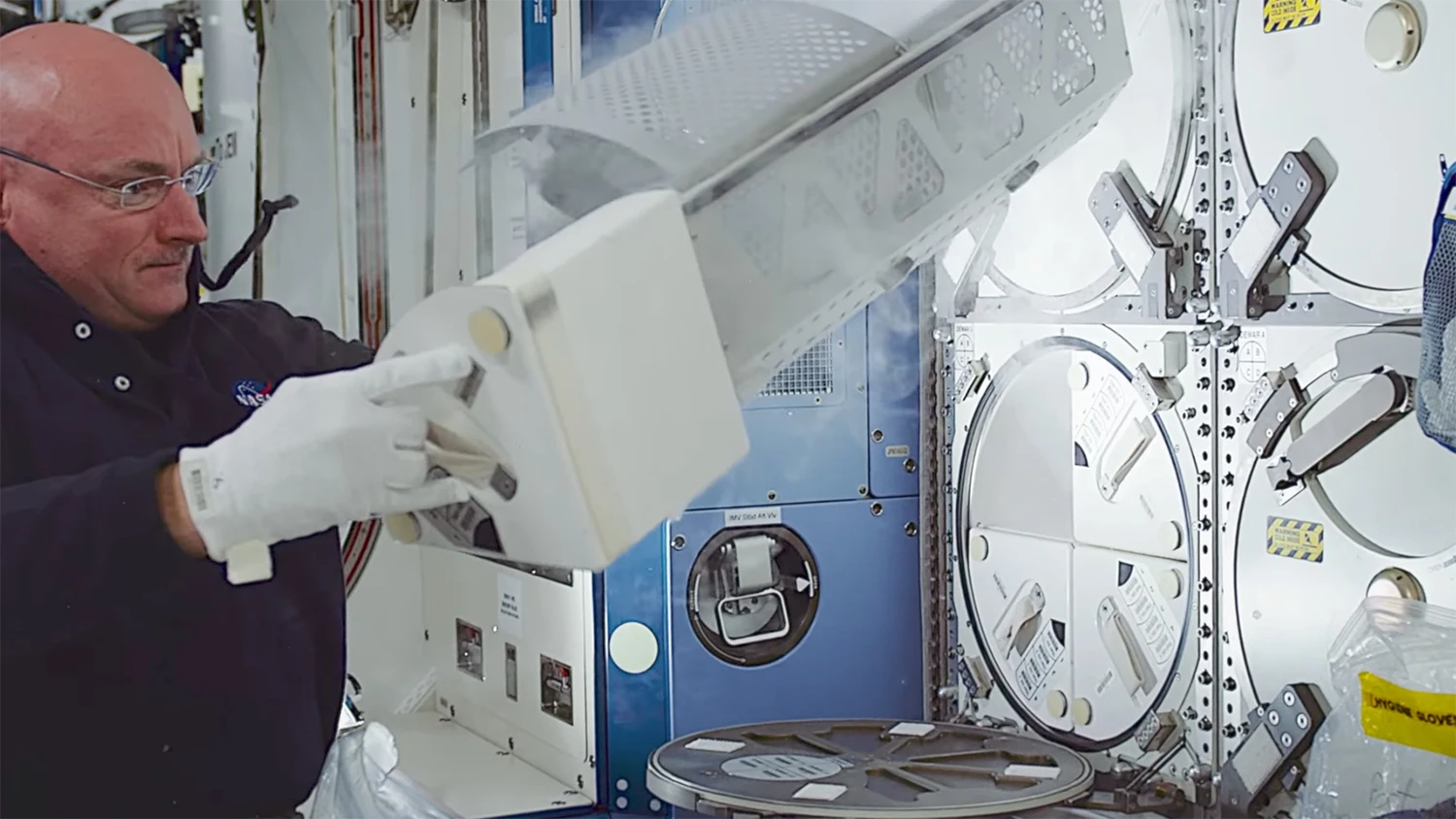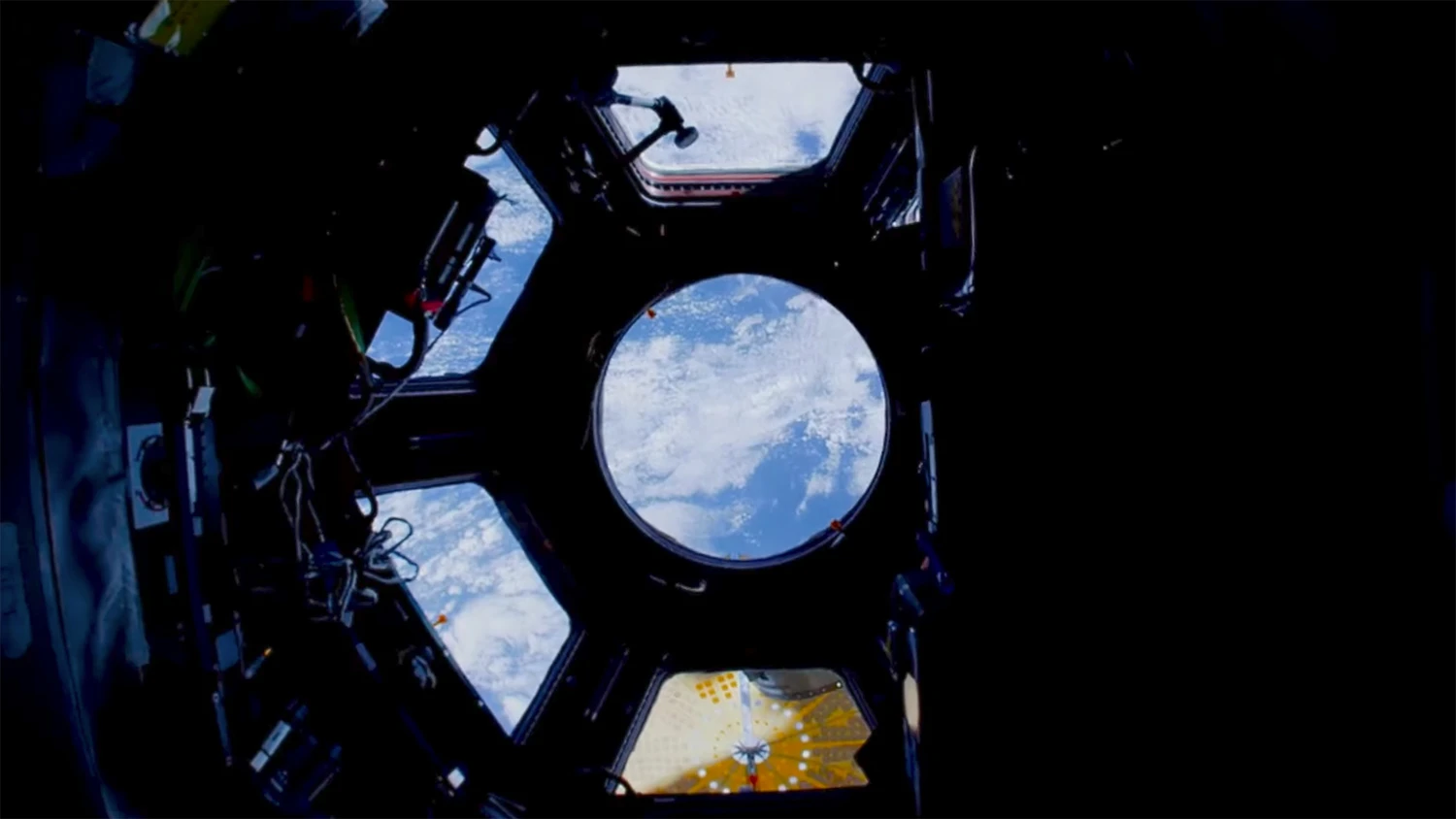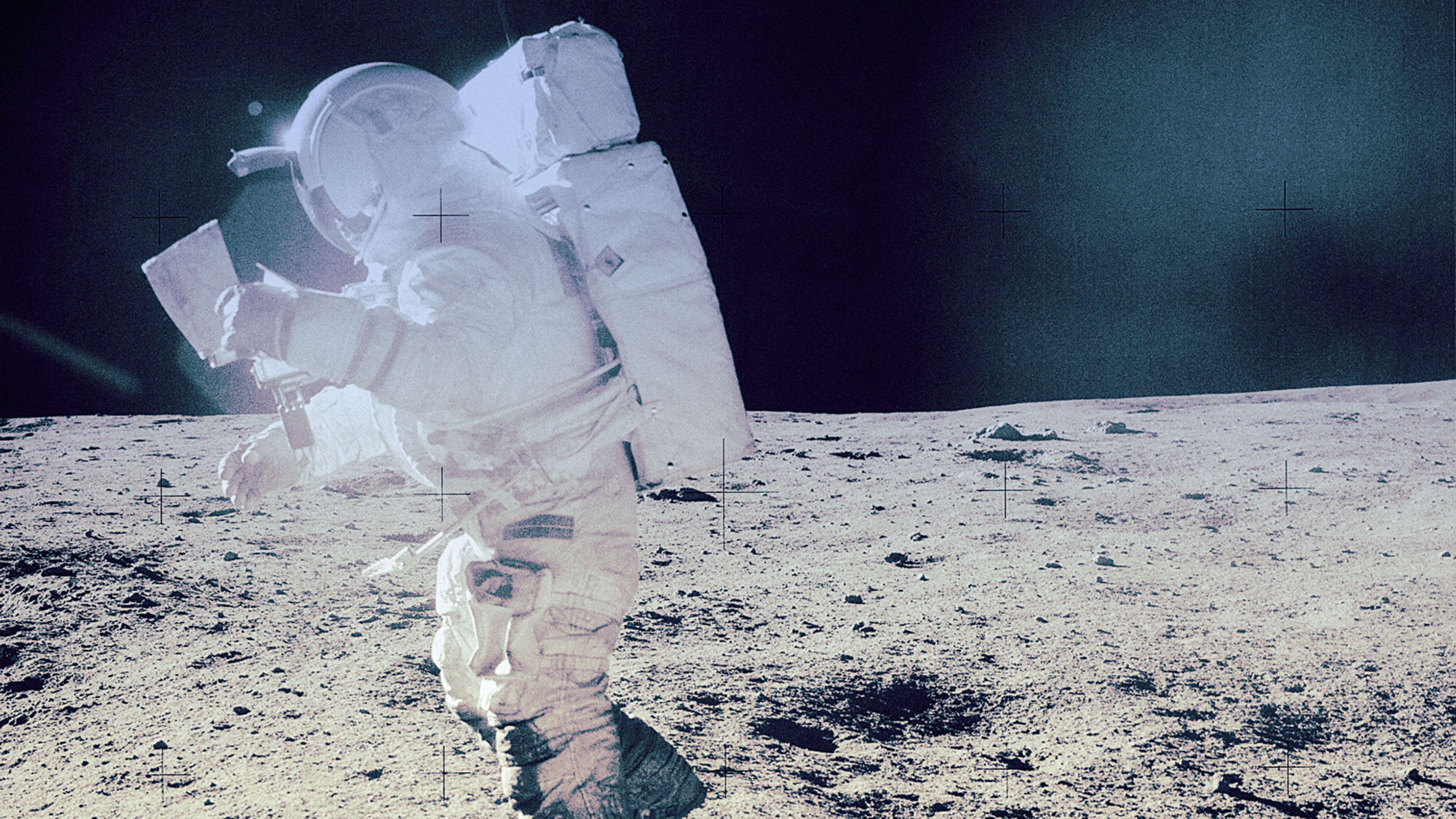When the next Elon Musk SpaceX supply rocket blasts off Thursday for the International Space Station, it will be carrying some extra special cargo—hope in the war on Parkinson’s Disease.
The hope comes in the form of a protein that, when mutated, can cause and accelerate the debilitating damage Parkinson’s wreaks.
Researchers funded by the Michael J. Fox Foundation for Parkinson’s Research, are sending frozen samples of the protein, called LRKK2, in a specialized piece of lab equipment. Once aboard the orbiting space station, the proteins will be thawed and, the hope is, grown into crystals in tiny, test tube-like wells.
These LRRK2 crystals will better reveal the protein’s structure than what scientists can see on earth. The crystals will be returned to terra firma, where researchers will use the data to potentially develop protein inhibitors that target LRKK2.
“The opportunity to crystallize LRKK2 under microgravity conditions could mean faster progress toward breakthroughs that could benefit countless Parkinson’s patients and families,” says Deborah Brooks, cofounder and vice chair of Fox’s foundation.

The Promise Of Space Research
The project is just one of myriad biomedical experiments taking advantage of how living things, and the chemical compounds inside of them, operate in the low gravity of space.
In space, medically important chemicals, from proteins formed in the body to potential new drugs, develop into larger and better organized forms.
“They’re then brought back to earth so the researchers can better understand the structure of either the drug they’re making or the protein they’re targeting,” says Michael Roberts, deputy chief scientist at the Center for the Advancement of Science in Space, which runs the International Space Station National Lab.
The in-space experiments can help answer important scientific questions about complex biological processes and the causes of various diseases.
“I think we can safely say that this really, truly is a new frontier in medicine,” says Kris Kimel, chairman and cofounder of SpaceTango, a Lexington, Ky., startup that runs automated lab facilities on the space station.
Major pharmaceutical companies like Eli Lilly, Novartis, and Merck have also been working with CASIS to take advantage of microgravity research. The work may one day lead to space-based manufacturing of drugs, or even new therapies that can be performed on patients flown into space.
In June, CASIS announced plans to bring futuristic research tools called organs on chips to the space station. Those are tiny, microchip-like devices embedded with living cells that will react in space as if the full organ was there.
For instance, lung cells might be exposed to physical forces like breathing. Scientists are betting that bringing these chips into limited gravity will make it easier for them to form 3D structures, rather than the more two-dimensional ones that form on earth.
https://youtu.be/fY2IZ8dGs88
Lab Mice Take Orbit
The space station also hosts rodent lab facilities, where low gravity’s effect on the body—including mineral loss and muscle atrophy—can be studied in mice. That could help develop remedies for future astronauts facing similar effects or for earthbound humans, including the elderly, dealing with similar symptoms.
NASA and CASIS are working to boost the space station’s capacity for rodent experiments, and part of that involves enabling more automated systems to monitor the mice and keep them stocked with food and water, Roberts says.
One limitation of space research is that the academic and commercial scientists who design experiments don’t leave earth, meaning any research that needs human help must compete for astronaut time.
That’s also where SpaceTango’s TangoLab system can be of help. The company works with scientists to adapt their experiments to standardized modules, which can be installed in a low-maintenance lab unit that SpaceX delivered to the space station in August 2016.
SpaceTango CEO Twyman Clements says it’s similar to loading memory into a desktop computer. The company’s first for-hire experiments, launched in February, include an Airbus-led study exploring how a strain of methane-producing bacteria behaves in space, and a University of Kentucky study involving medicinal plant biochemistry.

“To the astronaut, basically, the operations are the same no matter what the experiment is,” says Clements. “We’re able to remotely control and monitor everything from our ground station here in Lexington.”
Boosting experimental capacity and efficiency is also important to the pharmaceutical industry, which must conduct multiple tests of potential drugs. Until recently, opportunities to conduct in-space experiments were few and far between, since space launches were so rare.
“If you got an experiment up during the shuttle days, you got to run one cycle of experiments and maybe five or eight years later, you got to go up and run it again,” says Kyle Keeney, executive director of the Exomedicine Institute, which promotes space-based research in collaboration with SpaceTango. “The scientific method has really been challenged, because we haven’t, until now, had the ability to quickly, and efficiently, and in a cost-effective way, replicate experiments.”

Medical research is even being conducted separate from the ISS. SpacePharma, a startup with offices in Palo Alto, Israel, and Switzerland, launched a fully automated, satellite-based lab in February.
Founder and CEO Yossi Yamin says the machine has already conducted three experiments in space, including one studying the rate of enzyme reactions, and one assembling protein structures in ways not seen on earth. SpacePharma plans to launch a redesigned satellite next year with room for up to 160 experiments.
Recognize your brand’s excellence by applying to this year’s Brands That Matter Awards before the early-rate deadline, May 3.
